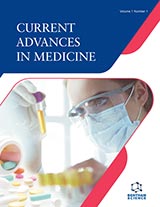Abstract
Fetal Alcohol Syndrome (FAS) is a permanent birth defect syndrome caused by maternal consumption of alcohol during pregnancy. Almost four decades have passed since the term FAS was first coined. The condition is now recognized as a spectrum of disorders: Fetal Alcohol Spectrum Disorders (FASD). Substantial progress has been made in developing specific criteria for delineating diagnoses under the umbrella of FASD. In the 14 years since the publication of the seminal report on FAS by the Institute of Medicine in 1996, clear consensus has been reached on two fundamental issues: 1) an FASD diagnostic evaluation is best conducted by a team of professionals from multiple disciplines (medicine, psychology, speech-language, occupational therapy) and 2) the team should use rigorously case-defined and validated FASD diagnostic guidelines. This chapter will provide a brief overview of the discovery of FASD, diagnostic challenges, how diagnostic guidelines and clinical models have evolved over time to address these challenges, and how new technology may influence the future of FASD diagnosis.






















